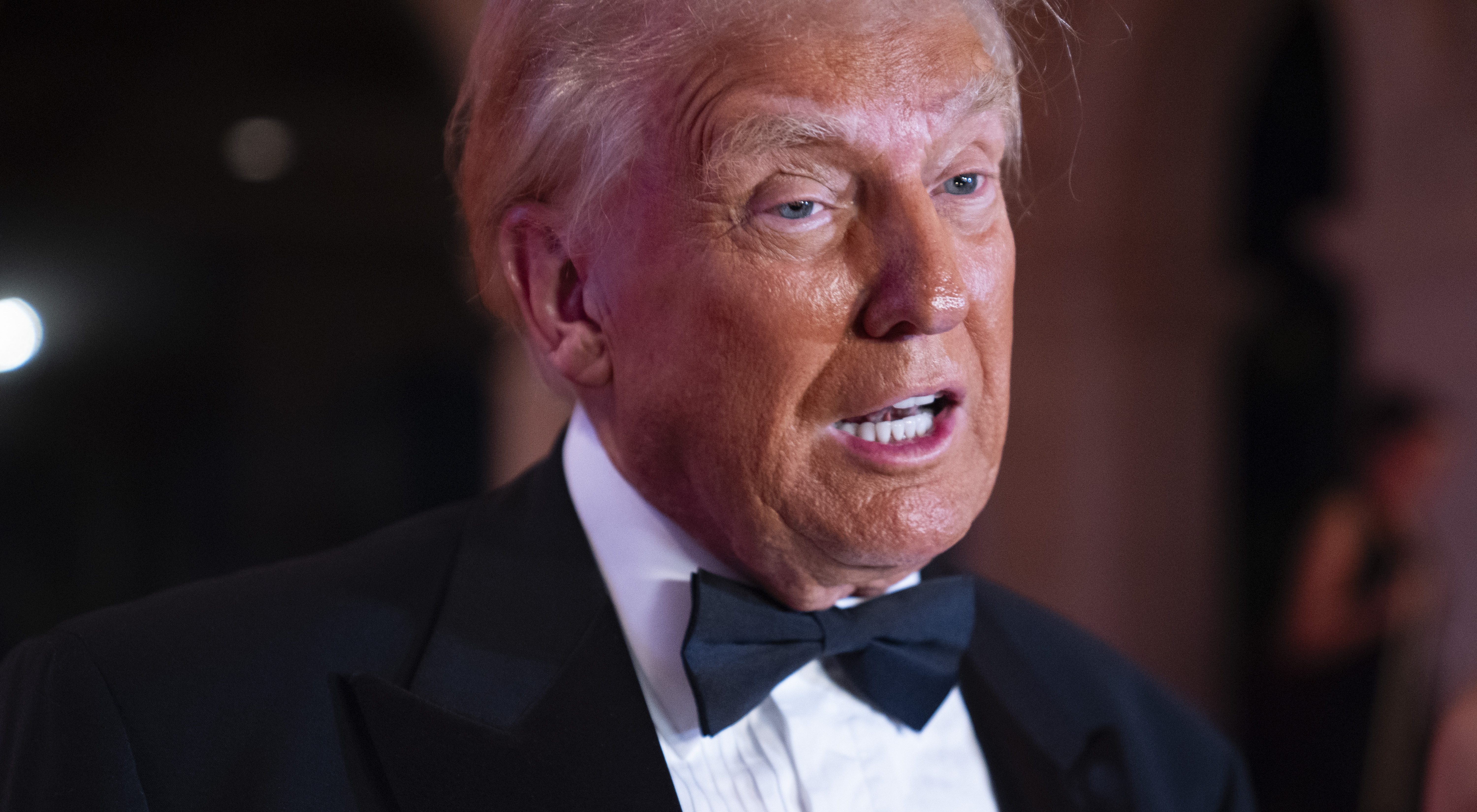
Kash Patel has been well-known for years within Donald Trump's orbit as a loyal supporter who shares the president-elect's skepticism of the FBI and intelligence community. But he's receiving fresh attention, from the public and from Congress, now that Trump has picked him to lead the FBI.
As he braces for a bruising and likely protracted Senate confirmation fight, Patel can expect scrutiny not only over his professed fealty to Trump but also for his belief — revealed over the last year in interviews and his own book — that the century-old FBI should be radically overhauled.
Here's a look at some of what he's proposed for the nation's premier federal law enforcement agency. How much of it he'd actually follow through on is a separate question.
He's mused about shutting down the FBI's Washington headquarters
Get top local stories in Philly delivered to you every morning. >Sign up for NBC Philadelphia's News Headlines newsletter.
The first FBI employees moved into the current Pennsylvania Avenue headquarters 50 years ago. The building since then has housed the supervisors and leaders who make decisions affecting offices around the country and overseas.
But if Patel has his way, the J. Edgar Hoover Building could be shut down, with its employees dispersed.
“I’d shut down the FBI Hoover Building on day one and reopen it the next day as a museum of the ‘deep state,’" Patel said in an interview on the “Shawn Ryan Show" that aired in September. "Then, I’d take the 7,000 employees that work in that building and send them across America to chase down criminals. Go be cops. You’re cops — go be cops.”
U.S. & World
Stories that affect your life across the U.S. and around the world.
Such a plan would undoubtedly encounter legal, logistical and bureaucratic hurdles and it may reflect more of a rhetorical flourish than a practical ambition.
In a book last year titled, “Government Gangsters: The Deep State, the Truth and the Battle for Our Democracy,” he proposed a more modest reform of having the headquarters moved out of Washington “to prevent institutional capture and curb FBI leadership from engaging in political gamesmanship.”
As it happens, the long-term fate of the building is in flux regardless of the leadership transition. The General Services Administration last year selected Greenbelt, Maryland, as the site for a new headquarters, but current FBI Director Christopher Wray has raised concerns about a potential conflict of interest in the site selection process.
He's talked about finding ‘conspirators' in the government and media
In an interview last year with conservative strategist Steve Bannon, Patel repeated falsehoods about President Joe Biden and a stolen election.
“We’re going to come after the people in the media who lied about American citizens, who helped Joe Biden rig presidential elections," Patel said. The same applies for supposed “conspirators” inside the federal government, he said.
It's not entirely clear what he envisions, but to the extent Patel wants to make it easier for the government to crack down on officials who disclose sensitive information and the reporters who receive it, it sounds like he'd back a reversal of current Justice Department policy that generally prohibits prosecutors from seizing the records of journalists in leak investigations.
That policy was implemented in 2021 by Attorney General Merrick Garland following an uproar over the revelation that the Justice Department during the Trump administration had obtained phone records of reporters as part of investigations into who had disclosed government secrets.
Patel himself has said that it's yet to be determined whether such a crackdown would be done civilly or criminally. His book includes several pages of former officials from the FBI, Justice Department and other federal agencies he's identified as being part of the “Executive Branch Deep State.”
Under the FBI’s own guidelines, criminal investigations can’t be rooted in arbitrary or groundless speculation but instead must have an authorized purpose to detect or interrupt criminal activity.
And while the FBI conducts investigations, the responsibility of filing federal charges, or bringing a lawsuit on behalf of the federal government, falls to the Justice Department. Trump intends to nominate former Florida attorney general Pam Bondi as attorney general.
He wants ‘major, major’ surveillance reform
Patel has been a fierce critic of the FBI's use of its surveillance authorities under the Foreign Intelligence Surveillance Act, and in his “Shawn Ryan Show” interview, called for “major, major reform."
That position aligns him with both left-leaning civil libertarians who have long been skeptical of government power and Trump supporters outraged by well-documented surveillance missteps during the FBI's investigation into potential ties between Russia and Trump's 2016 campaign.
But it sets him far apart from FBI leadership, which has stressed the need for the bureau to retain its ability to spy on suspected spies and terrorists even as it's also implemented corrective steps meant to correct past abuses.
If confirmed, Patel would take over the FBI amid continued debate over a particularly contentious provision of FISA known as Section 702, which permits the U.S. to collect without a warrant the communications of non-Americans located outside the country for the purpose of gathering foreign intelligence.
Biden in April signed a two-year extension of the authority following a fierce congressional dispute centered on whether the FBI should be restricted from using the program to search for Americans’ data. Though the FBI boasts a high compliance rate, analysts have been blamed for a series of abuses and mistakes, including improperly querying the intelligence repository for information about Americans or others in the U.S., including a member of Congress and participants in the racial justice protests of 2020 and the Jan. 6, 2021, riot at the U.S. Capitol.
Patel has made clear his disdain for the reauthorization vote, though he's also said the tool is an important national security power in the fight against terrorism.
“Because the budget of FISA was up this cycle, we demanded Congress fix it. And do you know what the majority in the House, where the Republicans did? They bent the knee. They (reauthorized) it,” Patel told Ryan.
He has called for reducing the size of the intelligence community
Patel has advocated cutting the federal government's intelligence community, including the CIA and National Security Agency.
When it comes to the FBI, he has said that he would support breaking off the bureau's “intel shops” from the rest of its crime-fighting activities.
It's not clear exactly how he would intend to do that given that the FBI's intelligence-gathering operations form a core part of the bureau's mandate and budget. Wray, who's been in the job for seven years, has also recently warned of a heightened threat environment related to international and domestic terrorism.
After the Sept. 11, 2001 attacks, then-FBI Director Robert Mueller faced down calls from some in Congress who thought the FBI should be split up, with a new domestic intelligence agency created in its wake.
The idea died, and Mueller committed new resources into transforming what for decades had been primarily a domestic law enforcement agency into an intelligence-gathering institution equally focused on combating terrorism, spies and foreign threats.
Frank Montoya Jr., a retired senior FBI official who served as the U.S. government's national counterintelligence executive, said he disagreed with the idea of breaking out the FBI's “intel shops" and viewed it as a way to defang the bureau.
Doing so, he said, “makes the bureau less effective at what it does, and quite frankly, it will make the intelligence community less effective at what it does.”



